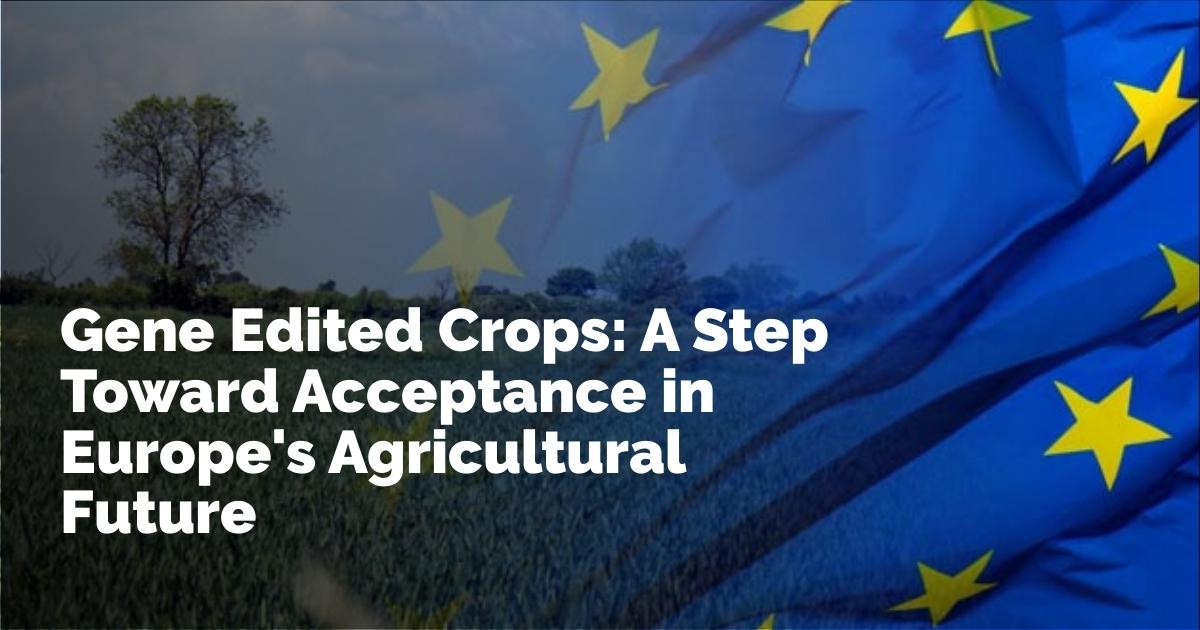Gene Edited Crops: A Step Closer to European Acceptance
In recent years, the topic of genetically engineered crops has sparked widespread debate across Europe. As the world faces mounting challenges in agriculture, from climate change to food security, the European Union is seeking innovative solutions. Central to this initiative is the European Commission's new strategic blueprint, which seeks to integrate cutting-edge scientific advancements into agricultural practices. This article explores the potential shift in European agricultural policy towards more widespread acceptance of gene-edited crops and what it means for the future of farming in the continent.
Innovative Approaches to Sustainable Agriculture
The European Commission is spearheading a new strategy to bolster its agricultural systems by leveraging research and innovation. This plan emphasizes the need for competitive and sustainable agricultural practices that can adapt to the growing challenges of the modern world. By focusing on innovation-friendly regulations, faster risk assessments, and research partnerships, the Commission aims to remodel Europe's agricultural landscape. One of the cornerstone technologies in this effort is the advancement of new genomic techniques, or NGTs, which promise to alter plant genetics more quickly and precisely than older methods.
NGTs represent a significant leap forward in plant breeding innovations. Unlike traditional genetic modification, these techniques allow for more nuanced alterations in the plant genome, potentially leading to more robust crop varieties better suited to withstand environmental stressors. The European Commission believes that such innovations are vital to ensuring food security for the continent, especially as climate change continues to alter agricultural viability.
Legislative Hurdles: The Stalled 2023 Proposal
Despite the potential benefits of NGTs, political inertia remains a significant barrier. In 2023, a proposal was put forth to relax regulations surrounding these techniques. However, the proposal has since been stalled within the Council, delaying potential progress. The Commission has highlighted the urgency of adopting these proposals, noting that other regions are already updating their legislation to accommodate such advancements. This delay risks placing European farmers at a competitive disadvantage globally.
MEP Jessica Polfjärd, who serves as the Parliament’s rapporteur for the proposal, has expressed optimism that the Council will soon take a definitive stance. She argues that integrating NGTs into agriculture could significantly reshape farming, making it more resilient to climate effects, reducing reliance on chemical fertilizers and pesticides, and ultimately enhancing the competitive position of European farmers. Furthermore, she points out that these innovations could contribute to reducing agricultural emissions, aligning with broader environmental goals.
The Role of NGTs in Modernizing European Agriculture
The integration of NGTs within European farming practices offers a transformative opportunity. By optimizing crop resilience and minimizing dependency on external chemical inputs, these techniques promise to not only improve yields but also enhance the sustainability of farming operations. Moreover, given the heightened focus on climate change mitigation, NGTs could provide vital tools to create crop varieties that require fewer resources and are more adaptive to changing weather patterns.
European farmers could benefit significantly from adopting such advancements. Not only could these techniques bolster productivity, but they could also reduce production costs by diminishing the need for expensive fertilizers and plant protection products. Additionally, more resilient crop varieties could provide a buffer against the unpredictabilities of climate change, thus stabilizing food production and supply.
Moving Towards a Competitive Future
For Europe to uphold its food security and agricultural competitiveness, aligning its policies with technological advancements is vital. The integration of gene editing and related technologies into agricultural practices is not just an option but a necessity if Europe wishes to maintain its edge on the global stage. As other regions adapt and implement these innovations, the EU must navigate its regulatory frameworks to facilitate rather than hinder such progress.
The European Commission’s strategy represents a forward-thinking approach that acknowledges the rapid pace of technological change and the pressing challenges of modern agriculture. By embracing these changes, Europe can proactively secure a sustainable and competitive agricultural future. The promise of NGTs and similar innovations lies in their potential to revolutionize farming practices, making them more efficient, environmentally friendly, and resilient to external stressors.
In sum, as Europe stands on the cusp of integrating gene-edited crops into its agricultural standards, the choices made today could shape the continent's agrarian landscape for decades to come. Embracing these innovations offers the hope of more sustainable, productive, and competitive farming, ensuring that Europe remains at the forefront of global agricultural advancements.
출처 : Original Source

